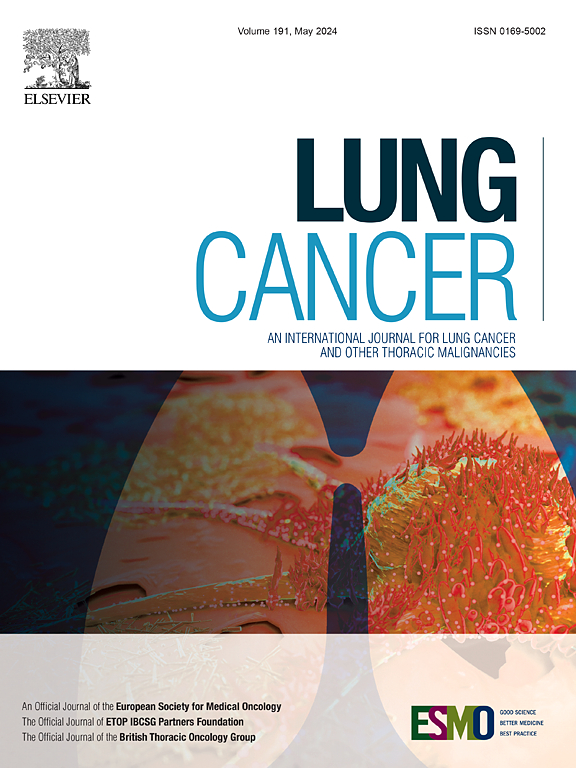An introduction to pragmatic trials in lung cancer research: A multi-faceted approach
IF 4.4
2区 医学
Q1 ONCOLOGY
引用次数: 0
Abstract
Pragmatic clinical trials (PTs) are increasingly recognised as a key methodology in lung cancer research, designed to evaluate the effectiveness of interventions in routine clinical settings. In contrast to traditional randomised controlled trials (RCTs), which involve highly selected patient populations under ideal conditions, PTs enrol broader, more representative cohorts, use streamlined trial procedures, and focus on outcomes that reflect patient-centred priorities. This enhances the generalisability of the results and supports evidence-based, joint decision-making between patients and clinicians. PTs offer a more sustainable and scalable path to generate clinically meaningful evidence that improves the quality of patient care and can address longstanding evidence gaps in the management of patients with lung cancer.
This narrative review outlines the main features of PTs, highlighting the PRECIS-2 tool as a framework to design and evaluate the degree of pragmatism of a trial. Common challenges in clinical trial design — including recruitment of participants, informed consent, selection of appropriate clinical endpoints, data quality — are discussed alongside practical solutions. The emerging role of PTs in generating regulatory-grade evidence and the impact of PTs on clinical guidelines is discussed. Ongoing PTs are outlined, which demonstrate how pragmatic methodologies can be used to the evaluate screening interventions, therapeutic strategies and models of care delivery across a range of clinical settings.
介绍肺癌研究中的实用试验:一个多方面的方法
实用临床试验(PTs)越来越被认为是肺癌研究的一种关键方法,旨在评估常规临床环境中干预措施的有效性。传统的随机对照试验(RCTs)在理想条件下对患者群体进行高度选择,而PTs则招募更广泛、更具代表性的队列,使用简化的试验程序,并关注以患者为中心的优先事项的结果。这增强了结果的普遍性,并支持患者和临床医生之间基于证据的联合决策。PTs提供了一种更可持续和可扩展的途径来产生有临床意义的证据,从而提高患者护理质量,并可以解决肺癌患者管理中长期存在的证据缺口。这篇叙述性综述概述了PTs的主要特点,强调了PRECIS-2工具作为设计和评估试验实用程度的框架。临床试验设计中的常见挑战——包括招募参与者、知情同意、选择适当的临床终点、数据质量——与实际解决方案一起讨论。讨论了PTs在产生监管级证据方面的新兴作用以及PTs对临床指南的影响。本文概述了正在进行的PTs,展示了如何使用实用的方法来评估筛查干预措施、治疗策略和各种临床环境下的护理交付模式。
本文章由计算机程序翻译,如有差异,请以英文原文为准。
求助全文
约1分钟内获得全文
求助全文
来源期刊

Lung Cancer
医学-呼吸系统
CiteScore
9.40
自引率
3.80%
发文量
407
审稿时长
25 days
期刊介绍:
Lung Cancer is an international publication covering the clinical, translational and basic science of malignancies of the lung and chest region.Original research articles, early reports, review articles, editorials and correspondence covering the prevention, epidemiology and etiology, basic biology, pathology, clinical assessment, surgery, chemotherapy, radiotherapy, combined treatment modalities, other treatment modalities and outcomes of lung cancer are welcome.
 求助内容:
求助内容: 应助结果提醒方式:
应助结果提醒方式:


